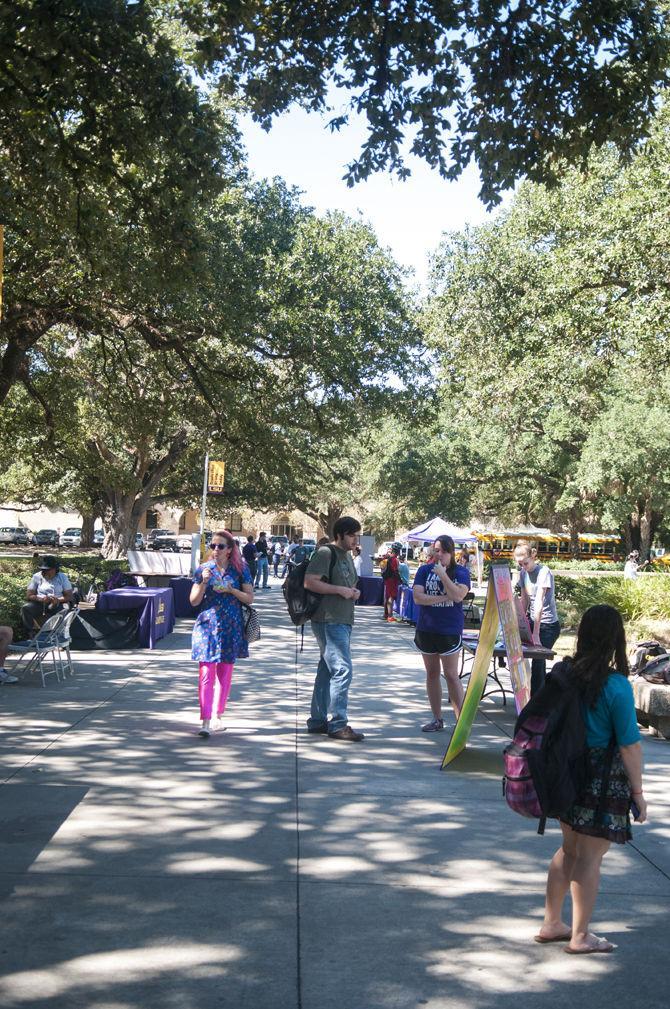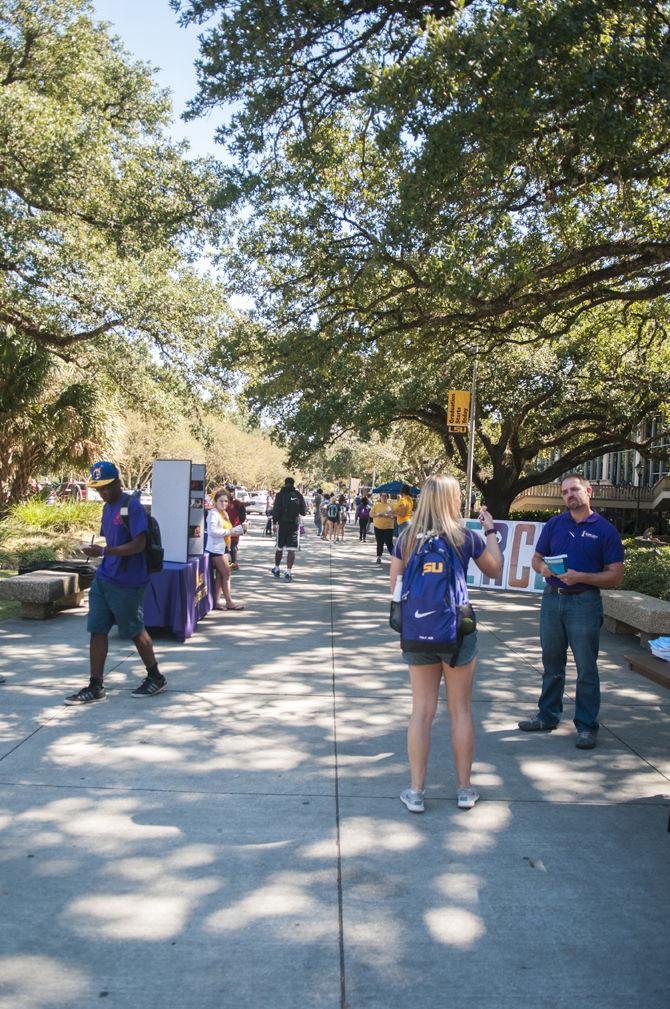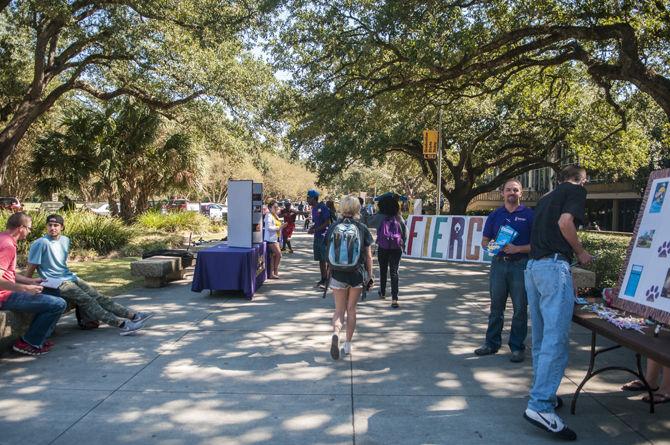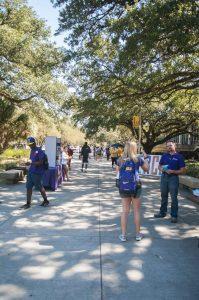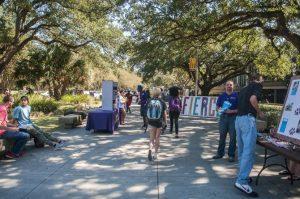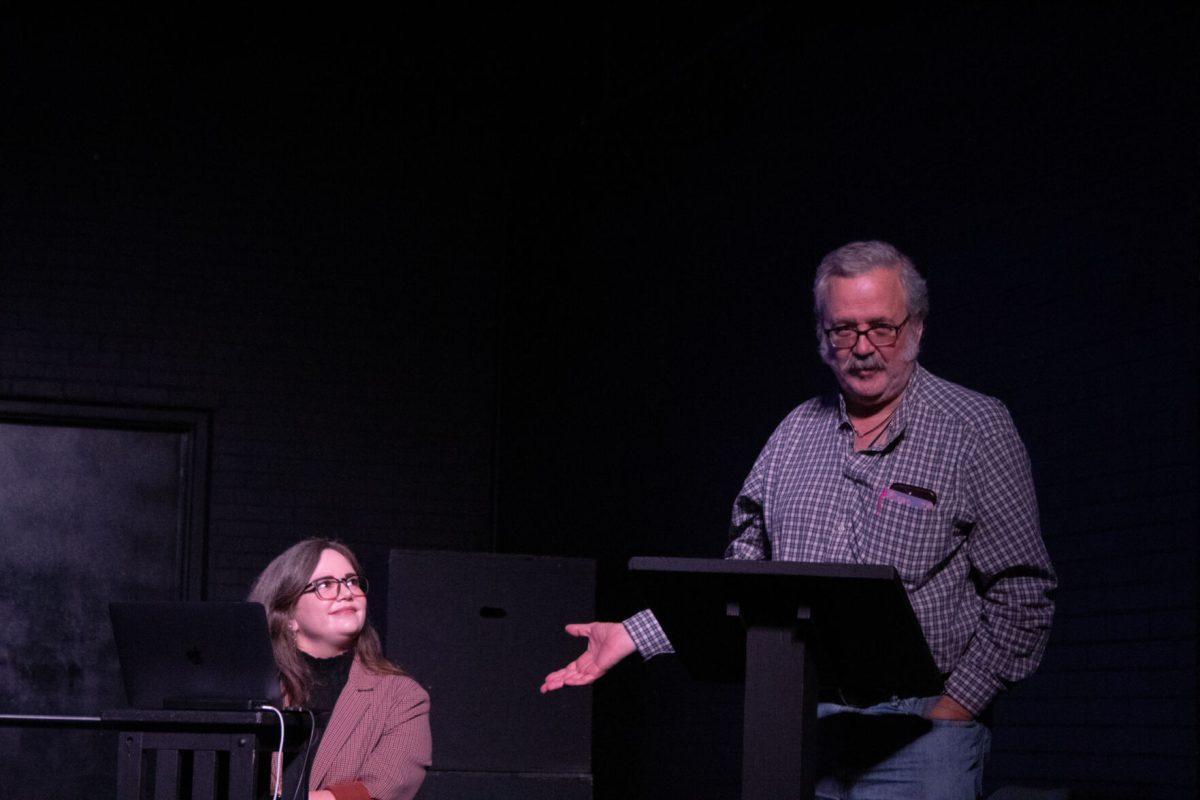While free speech zones at universities across the nation have been dismantled, such as Texas Tech University’s “Free Speech Gazebo,” LSU’s Free Speech Plaza is still going strong.
Freedom of expression is allowed anywhere on campus, but Auxiliary Services Communications Coordinator Heather Gulino said she suggests organizations stay in Free Speech Plaza so the university can regulate the area.
“People can express themselves without worrying about being physically hurt, whether it be the person that’s creating the opinion or somebody who opposes the opinion,” Gulino said. “I think in Free Speech [Plaza], it kind of protects your right to do that.”
Prior to 2012, students were not allowed to distribute written material outside Free Speech Plaza, according to the Foundation for Individual Rights in Education. After a lawsuit filed by the Alliance Defending Freedom on behalf of a student, Candler v. Jenkins, LSU revised the policy to say that freedom of expression was no longer restricted to Free Speech Plaza.
Spectrum vice president of administration and biology senior Julianne Martin said they enjoy the opportunities for the outreach Free Speech Plaza provides.
“I really like getting to meet people because this is one of the biggest ways that organizations are really putting themselves out there,” Martin said. “A lot of people that you might not reach out to just in passing get a chance to really see you.”
Free Speech Plaza, more commonly referred to as “Free Speech Alley,” was established in October 1964 during the Vietnam War to give students a place to talk, Gulino said.
The Daily Reveille reported in 1967 that the area was closed for a week and nearly permanently shut down because of repeated use of obscenities and vulgar language.
During that time, Free Speech Plaza was open once or twice a week from 12:30 p.m. to 2:30 p.m. and moderated mainly by students. However, state legislation passed that year banned “communistic and atheistic” speakers from coming to the Plaza, the Shreveport Times reported in 1967.
To limit free expression, the LSU Union Inter Exchange Committee changed the Plaza’s name to “The Alley: A Student Forum,” the Baton Rouge State Times reported in 1971. The name change was eventually rejected by Free Speech Plaza regulars and resulted in moving the site from between the Union Bookstore and Theater to the steps in front of the Student Union.
Following the move of Free Speech Plaza to the Student Union steps, removal of the establishment was once again attempted by the campus police, who said they were enforcing a policy preventing congregation on the steps, according to a 1979 copy of the Baton Rouge State Times.
Ivan Imes, also known as “Jesus Talks” guy, has been coming to Free Speech Plaza for nearly 10 years. While the organizations have changed, Imes said the area’s general atmosphere has remained the same.
“I can’t say there’s been a lot of change,” Imes said. “It’s pretty much the same kind of thing.”
Today, Free Speech Plaza is frequented by student organizations, which book tables for free. Groups from outside LSU must pay a fee.
Facility Services sets up the number of tables needed for each day, and organizations that have not booked a space are asked to leave, Gulino said.
Psychology junior Sarah Guidry, president of Planned Parenthood Generation Action, said she enjoys serving the campus in a positive way.
“My favorite part [about Free Speech Plaza] would be just being in service to LSU students,” Guidry said. “We serve a really important purpose on campus, and it’s good to know we’ll be there every single week so that people can depend on us.”
However, Guidry also said her least favorite part about Free Speech Plaza is the ability of others to say inaccurate things. While protecting free speech is important, Guidry said she finds the inaccuracy of some statements concerning.
Free Speech Plaza endures despite past controversies
By Tia Banerjee
October 18, 2015
LSU students walk past different organizations set up on Thursday, Oct. 15, 2015 in Free Speech Alley.
More to Discover



